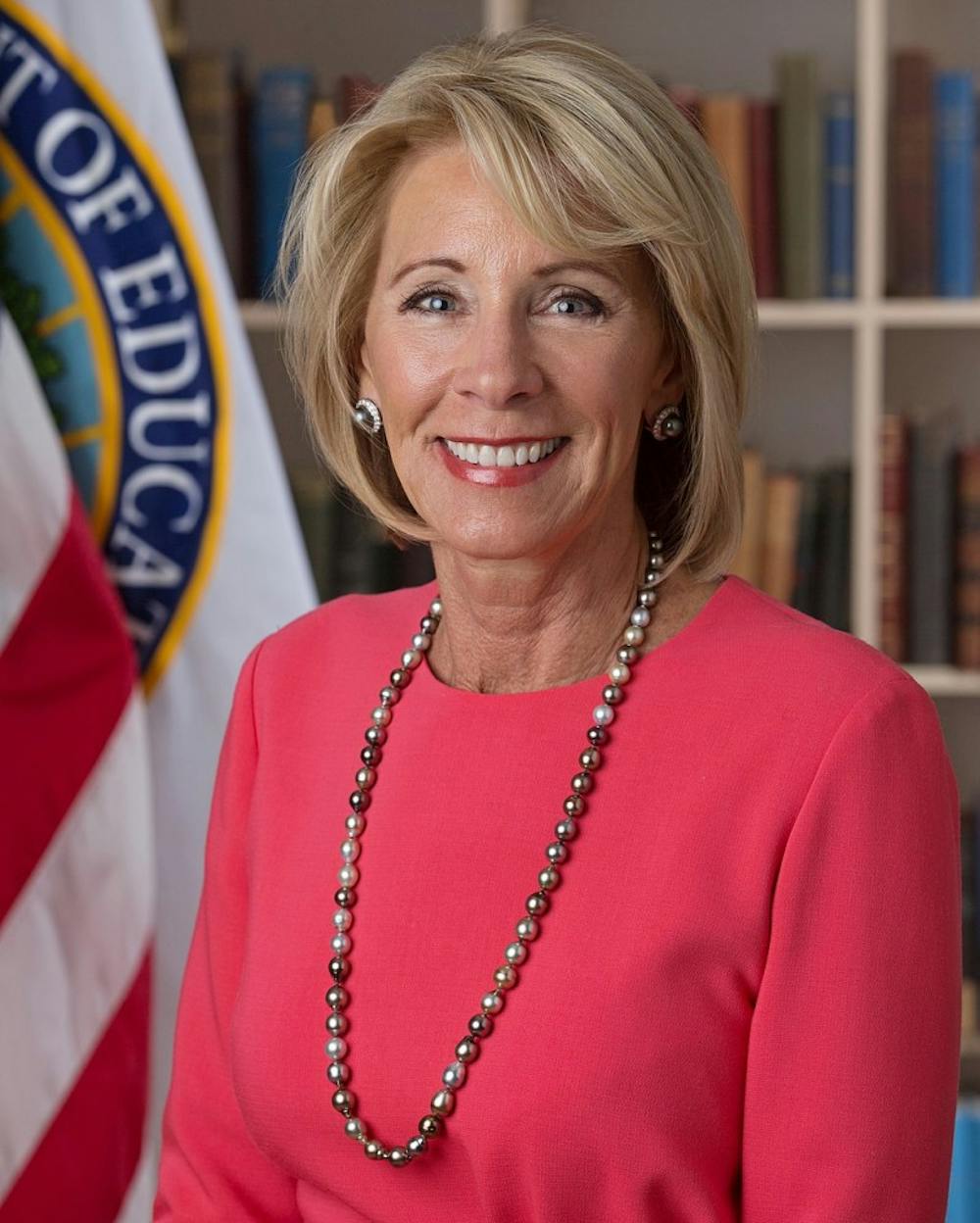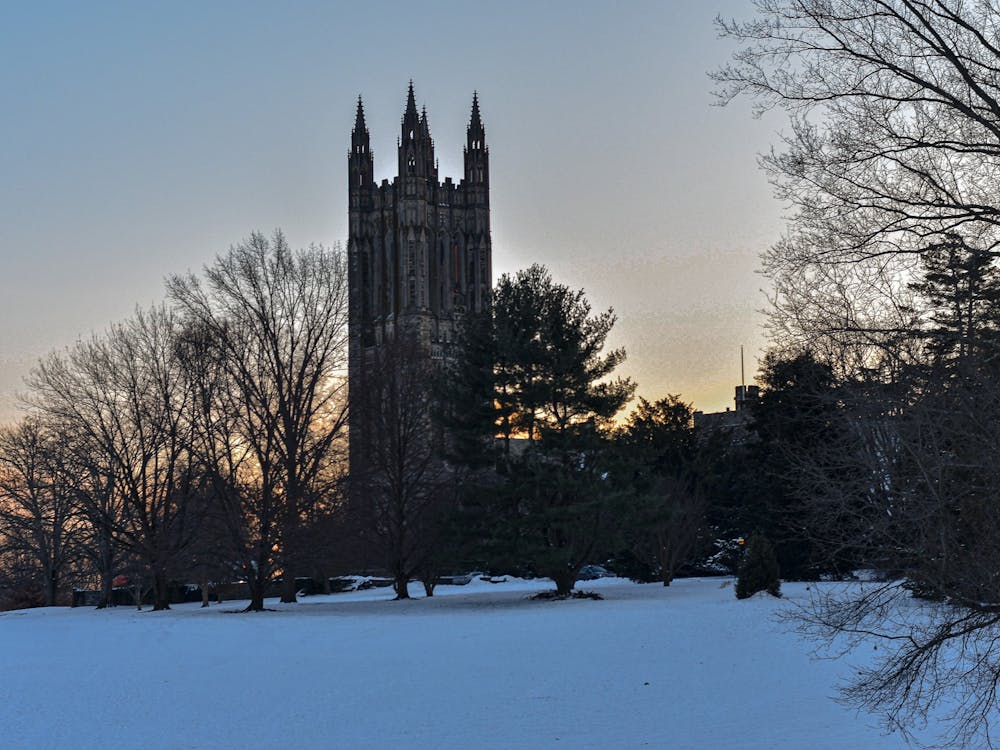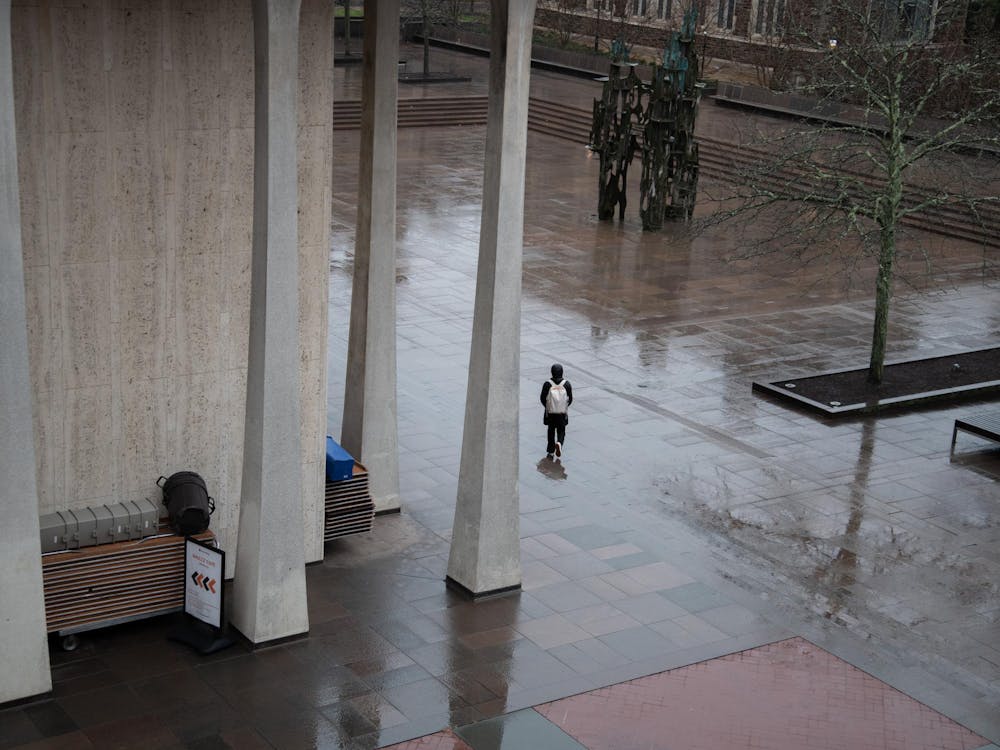In conjunction with peer institutions, the University has criticized Secretary Betsy DeVos’ proposed changes to Title IX regulations.
In November of 2018, the Department of Education (DOE), headed by DeVos, released proposed changes to Title IX, which is best known for instituting rules about the handling of sexual misconduct on college campuses.
The proposal was open for a 60-day period of public comment, extended slightly to Jan. 30 after the government shutdown created technical issues with the commenting platform.
The proposal received approximately 100,000 comments from a variety of individuals, academics, institutions and student groups. Many commenters relayed personal stories of sexual misconduct, vented about DeVos, praised the heightened stringency, or suggested official revisions, according to The Chronicle of Higher Education.
Title IX is a sprawling and significant set of regulations, and the proposed changes to it will continue to transform and unfold in the coming months. During that time, University policy will remain unchanged.
“We take our federal obligations seriously and do not plan to make any adjustments to our policies and processes until the regulations are finalized,” said Chang. “We believe that our current policy is working well; we will maintain our commitment to the wellbeing of the campus community and to preventing sexual and gender-based harassment.”
The University did not submit any comments individually. Instead, it worked with the American Association of Universities (AAU) to provide a critique of the DOE’s changes, according to University spokesperson Ben Chang. The AAU is composed of 62 research institutions, including every member of the Ivy League.
The AAU recommended that the DOE “remove requirements that institutions permit cross-examination.”
Originally, the proposal allowed for accusers to be questioned by a lawyer; this was among the most controversial of the DOE changes. For many, cross-examination creates concern that victims would be discouraged from coming forward.
The AAU also suggested removing the requirement that universities “apply the same standard of evidence and process across all disciplinary processes.”
This comment likely related to concerns about the higher burden of proof placed on accusers by the new Title IX proposal.
Additionally, the AAU asked for clarification on the altered definition of sexual harassment and a university’s right to regulate behavior outside of this definition.

The University also worked with the New Jersey State Bar Association (NJSBA) to draft additional comments. The NJSBA stated that if the regulations are enacted, academic institutions would require significant time — at least a year — to implement the changes.
Overall, the comments made by the University and NJSBA disapproved of the proposed changes.
“The proposed rule would impose on the Title IX grievance process a judicial construct that is largely incomprehensible with the nature and purpose of student grievance procedures in sexual harassment or sexual assault cases,” the NJSBA wrote.









